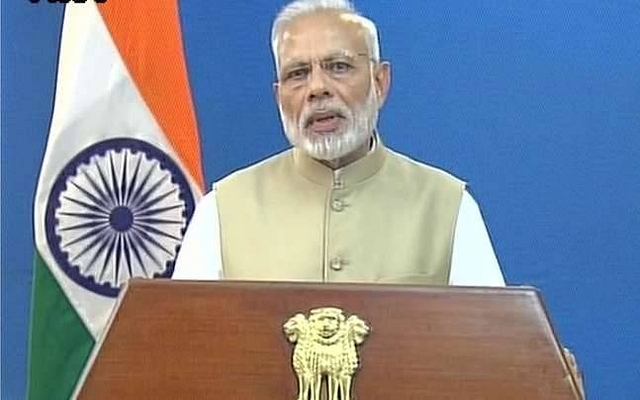
NDA Demonetises Rs 500 And Rs 1,000: Modi’s Surgical Strike Against Black Money Stuns All
The Prime Minister’s decision to demonetise Rs 500 and Rs 1,000 notes is a political masterstroke.
Narendra Modi has choked the supply of money to his rivals.
Economic revival will be impacted as black rupee currency can no longer be used to drive up business.
The Prime Minister's decision to demonetise Rs 500 and Rs 1,000 notes from midnight on Tuesday (8 November) is a political masterstroke, coming as it does on the eve of the Uttar Pradesh elections. It will also impact the stock of black money in the economy, crimping both the pace of economic recovery and revival of the investment cycle. When cash is crunched from the system, it tends to tighten liquidity as existing notes will have to be exchanged for smaller notes which will not immediately be available in adequate quantities. The new Rs 2,000 note will take some time to take up the slack in the coming months.
Here is what will be impacted.
First, politics. Elections are fought with black money. By demonetising high value notes on the eve of the UP elections, Narendra Modi has choked the supply of money to his rivals. There is also political value in emphasising that the fight against black money is serious. Score one for the PM's political acumen.
Second, black money and hawala transactions will be squeezed in the short term, since it will impact the existing stock of high value notes. But over the medium term, crooks will find a way to use new, legal tender.
Third, gold prices could rise, as it now becomes the most anonymous way of storing illegal assets. Gold will never go out of fashion in India.
Fourth, a key aim of demonetisation is the elimination of fake currency and terror funding. This will impact Pakistan's fake currency operations and also leave terrorists currently holding fake cash to look for other options. But over the medium term Pakistan will find other ways to fund terror since that is its main business.
Fifth, demonetisation will give a fillip to e-wallets and credit and debit cards. If payment banks had been started by now, they would have taken off vertically. Banks should use this opportunity to push electronic payments and mobile money.
Sixth, there could be some liquidity tightness as old notes disappear and demand for new notes (including Rs 100 and smaller denomination notes) increases. Big stashes of old notes will soon be rendered valueless, which will be extinguished.
Seventh, economic revival will be impacted as black rupee currency can no longer be used to drive up business. Businesses which depend a lot on cash - like real estate - will be hugely damaged. Banks will find themselves focusing on managing cash exchanges rather than cleaning up their balance-sheets. Their loans to real estate may get shakier. Their probems will get worse before they improve.
Eighth, corporate demand for loans may rise a bit as other sources of cash-based liquidity dry up.
Ninth, retail sales will be hit due to demonetisation. This will depress sales in the short run. Small day to day transactions will also be impacted as there will be an acute shortage of smaller notes in the short run.
Tenth, the stock market will be impacted by the accompanying uncertainties.
All in all, the Modi strike against black money is politically astute, but its economic impact will be negative in the short run. But it sends the right message of seriousness on black money, something the Modi government has been doing consistently.